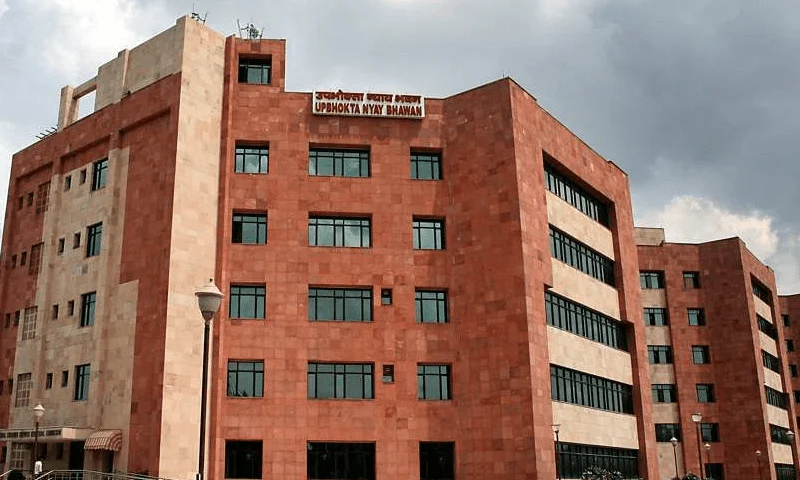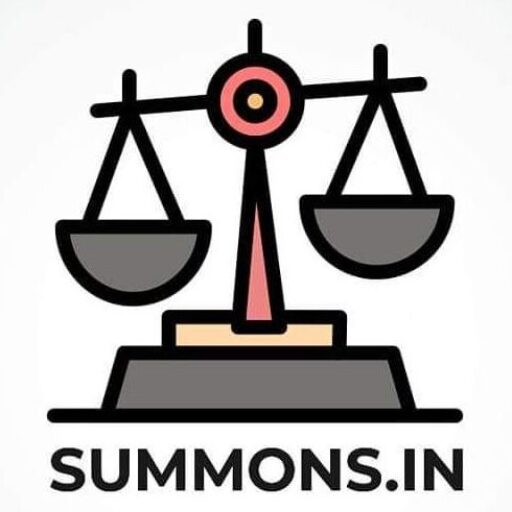
In Jaita Mitra Basu vs. Dr. Anirban Chatterjee & Nightingale Diagnostic & Medicare Centre Pvt. Ltd.
Case Overview
The National Consumer Disputes Redressal Commission (NCDRC) delivered a significant judgment on 28th February 2025 in the case of Jaita Mitra Basu & Srimoyee Basu vs. Dr. Anirban Chatterjee & Nightingale Diagnostic & Medicare Centre Pvt. Ltd. (Consumer Complaint No. 2644 of 2017). The case revolved around allegations of medical negligence and deficiency in service during a surgical procedure that led to the amputation of a minor’s right leg. The court imposed a penalty of Rs. 75 lakhs on the opposite parties (OPs) for their negligence, along with additional litigation costs.
Background of the Case
The complainants, Jaita Mitra Basu (mother) and Srimoyee Basu (minor daughter), filed a consumer complaint against Dr. Anirban Chatterjee (vascular surgeon) and Nightingale Diagnostic & Medicare Centre Pvt. Ltd. (hospital) for medical negligence during a surgical procedure performed on Srimoyee Basu, who was 2 years old at the time of the incident.
- Medical History: Srimoyee had been experiencing a swelling in her right gluteal region since 2000. Initially diagnosed as neurofibroma, the condition was later suspected to be angiolipoma after an FNAC test in 2014. By 2015, the swelling had increased in size, and further tests revealed an Arterio-Venous Malformation (AVM) in her right buttock.
- Surgical Procedure: On 16th September 2015, Dr. Chatterjee performed a vascular embolization procedure at Nightingale Hospital. During the surgery, a small amount of N-Butyl Cyanoacrylate (NBCA) glue used in the procedure accidentally slipped into the main artery of Srimoyee’s right leg. Dr. Chatterjee assured the parents that the issue was minor and could be resolved with a follow-up procedure the next day.
- Complications: Despite the follow-up procedure on 17th September 2015, Srimoyee’s condition worsened, and by 18th September 2015, blood circulation to her right leg had stopped, leading to gangrene. She was transferred to Sir Ganga Ram Hospital, Delhi, where her right leg was amputated above the knee on 22nd September 2015. Srimoyee was left with 90% permanent disability, requiring lifelong medical care and a prosthetic leg.
Allegations of Medical Negligence
The complainants alleged that:
- Negligence in Surgery: Dr. Chatterjee failed to exercise due caution during the embolization procedure, leading to the accidental slippage of NBCA glue into the main artery, which caused severe complications.
- Failure to Explore Alternatives: The complainants argued that alternative treatments, such as bypass surgery, could have mitigated the damage, but Dr. Chatterjee did not explore these options.
- Misrepresentation of Severity: Dr. Chatterjee allegedly misrepresented the severity of the situation post-surgery, assuring the parents that blood circulation was restored when, in fact, the condition had worsened.
- Lack of Informed Consent: The complainants claimed that they were not adequately informed about the risks associated with the procedure, particularly the risk of non-target embolization (glue slipping into unintended blood vessels).
Defense by the Opposite Parties
- Inherent Risks of AVM Embolization: Dr. Chatterjee argued that non-target embolization is a known risk of AVM embolization, and the complainants had signed a high-risk consent form acknowledging these risks. He maintained that the procedure was performed with due diligence and that the complications were unforeseeable.
- No Professional Fees Charged: Dr. Chatterjee claimed that he did not charge any professional fees for the procedure, and therefore, the complainants did not qualify as “consumers” under the Consumer Protection Act.
- Standard Medical Protocols Followed: Dr. Chatterjee contended that he followed standard medical protocols and consulted with other specialists, including a cardiothoracic surgeon, who confirmed that bypass surgery was not a viable option.
- Transfer to Delhi: Dr. Chatterjee facilitated Srimoyee’s transfer to Sir Ganga Ram Hospital in Delhi and coordinated with the medical team there, demonstrating his commitment to her care.
Court’s Findings
The NCDRC examined the evidence and arguments presented by both parties and made the following key findings:
- Medical Negligence Established: The court found that the slippage of NBCA glue into the main artery during the embolization procedure was a result of medical negligence. The court noted that while non-target embolization is a known risk, the severity of the complication and the failure to adequately inform the parents about the risks constituted a breach of duty.
- Informed Consent Not Obtained: The court held that the high-risk consent form signed by the parents did not adequately inform them of the specific risks, particularly the risk of glue slippage and its potential consequences. The court emphasized that informed consent is crucial, especially in high-risk procedures, and the parents should have been given a detailed explanation of the risks involved.
- Failure to Explore Alternatives: The court found that Dr. Chatterjee did not adequately explore alternative treatment options, such as bypass surgery, which could have potentially mitigated the damage.
- Liability of Nightingale Hospital: The court held that Nightingale Hospital was also liable for the negligence, as it provided the facilities for the procedure and failed to ensure that adequate precautions were taken.
Penalty Imposed by the Court
The NCDRC imposed the following penalties on the opposite parties:
- Compensation of Rs. 75 Lakhs: The court awarded a lump sum compensation of Rs. 75 lakhs to be paid jointly and severally by Dr. Anirban Chatterjee and Nightingale Hospital. This compensation was intended to cover:
- Medical expenses incurred by the complainants.
- Future medical care and prosthetic limb replacements.
- Loss of future prospects, including career opportunities and quality of life.
- Pain, suffering, and trauma endured by Srimoyee and her family.
- Interest on Delayed Payment: In the event of a delay in payment beyond one month, the opposite parties were directed to pay simple interest at 12% per annum on the Rs. 75 lakhs until the final payment was made.
- Litigation Costs: The court also directed the opposite parties to pay Rs. 50,000/- as litigation costs to the complainants.
Key Legal Principles Applied
- Informed Consent: The court emphasized the importance of informed consent in medical procedures, particularly in high-risk surgeries. The court referred to the Bolam Test and the Montgomery case, which stress the need for doctors to provide patients with all relevant information about the risks, benefits, and alternatives to a proposed treatment.
- Medical Negligence: The court reiterated that medical negligence involves a breach of duty of care by a medical professional, resulting in harm to the patient. The court found that Dr. Chatterjee failed to exercise the standard of care expected of a vascular surgeon, leading to severe consequences for Srimoyee.
- Compensation for Medical Negligence: The court referred to several Supreme Court judgments, including Alfred Benedict vs. Manipal Hospital and Shoda Devi vs. DDU/Ripon Hospital, to determine the appropriate compensation for the physical, emotional, and financial suffering endured by the complainants.
Conclusion
The judgment in Jaita Mitra Basu vs. Dr. Anirban Chatterjee is a landmark decision that underscores the importance of informed consent and the duty of care owed by medical professionals to their patients. The court’s decision to award Rs. 75 lakhs in compensation reflects the severe impact of medical negligence on the life of a young girl and her family. This case serves as a reminder to healthcare providers to adhere to the highest standards of care and to ensure that patients and their families are fully informed about the risks and alternatives before undergoing any medical procedure.
Key Takeaways from the Judgment
- Importance of Informed Consent: Doctors must ensure that patients and their families are fully aware of the risks, benefits, and alternatives before any medical procedure.
- Medical Negligence and Liability: Hospitals and doctors can be held jointly liable for negligence, especially in cases where proper protocols are not followed.
- Compensation for Victims: Courts are increasingly awarding significant compensation to victims of medical negligence to cover medical expenses, future care, and emotional trauma. #MedicalNegligence #InformedConsent #ConsumerRights #NCDRC #HealthcareLiability #ArterioVenousMalformation #MedicalCompensation #PatientRights #LegalJudgment #HealthcareStandards #MedicalEthics #SurgicalComplications #ProstheticCare #MedicalLaw #ConsumerProtectionAct
This case serves as a critical reminder of the ethical and legal responsibilities of healthcare providers and the importance of patient-centered care in the medical profession.
Edited and Reviewed by
9891800100
